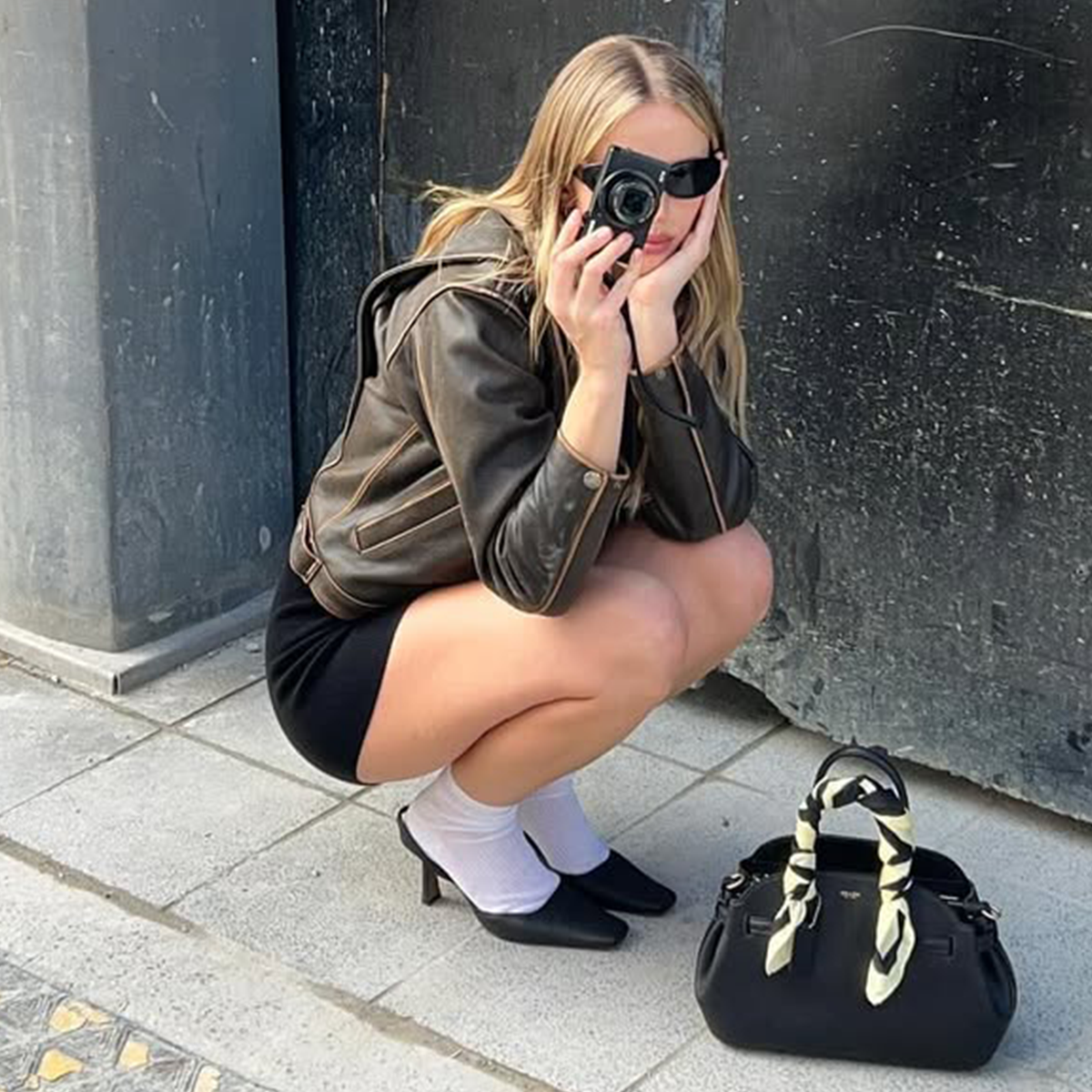Victoria Monét Is Having Her Moment
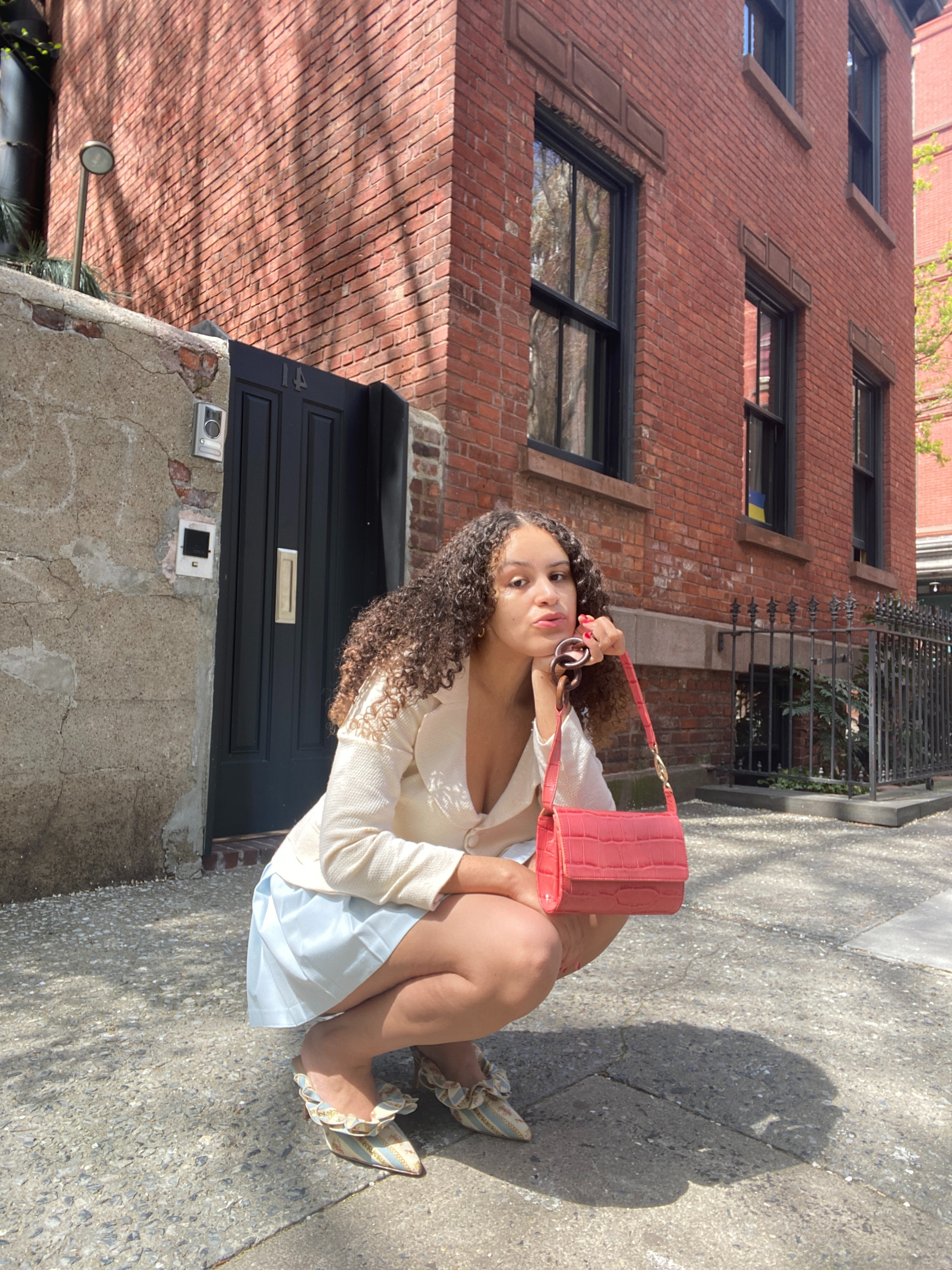
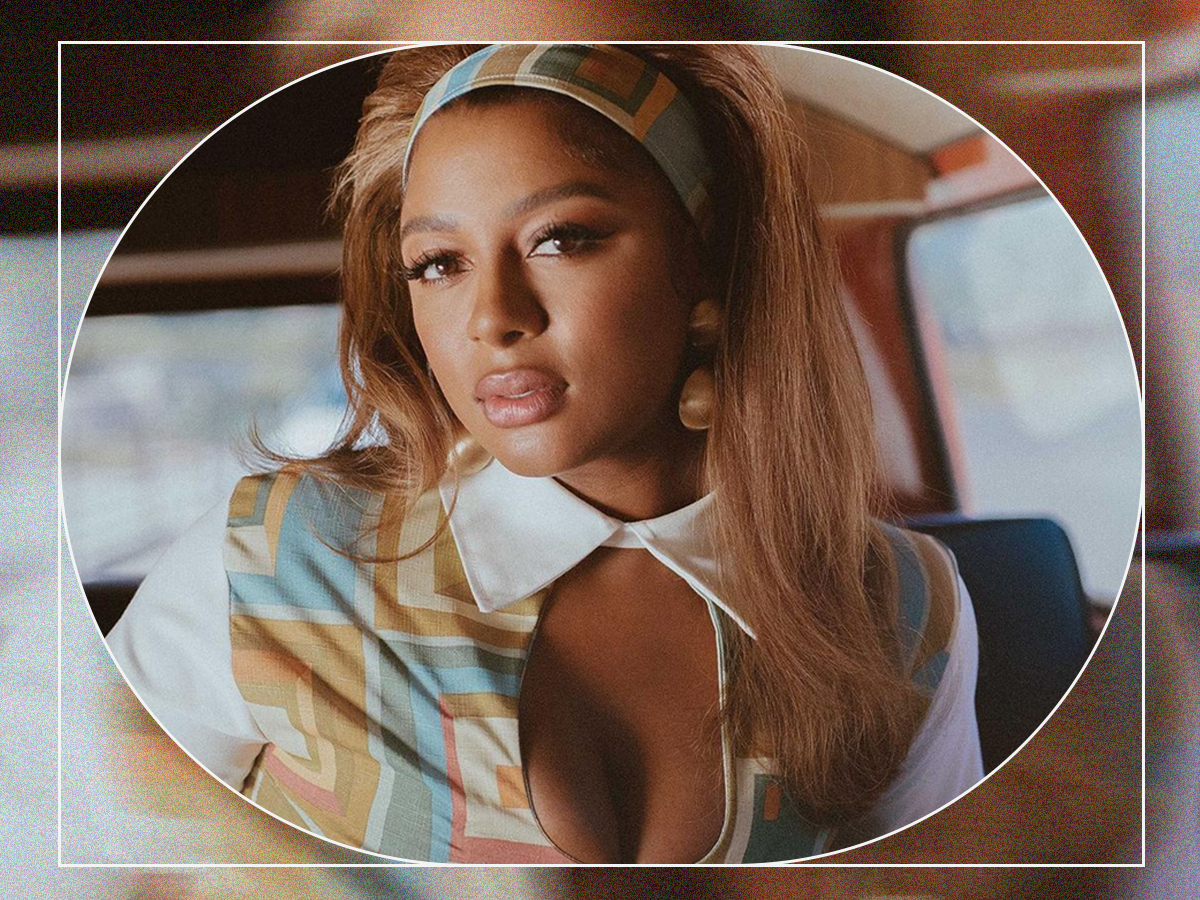
For writers, there is a particular trepidation when it comes to actually putting pen to paper. The moment the words are finally on display and out there for public consumption, critique can feel daunting. Words hold a similar weight for musicians because they aren’t found just between reams or on screens; their words jump off the page and reverberate into stadiums, fill the silence on commutes, and find homes on strangers’ lips. Music can transport us back in time or speak to the moment we’re in, and the truly talented singers and songwriters understand that those three-plus minutes may be the only opportunity they have to be heard. There’s no artist who can capture and encapsulate the moment through melodies quite like Victoria Monét.
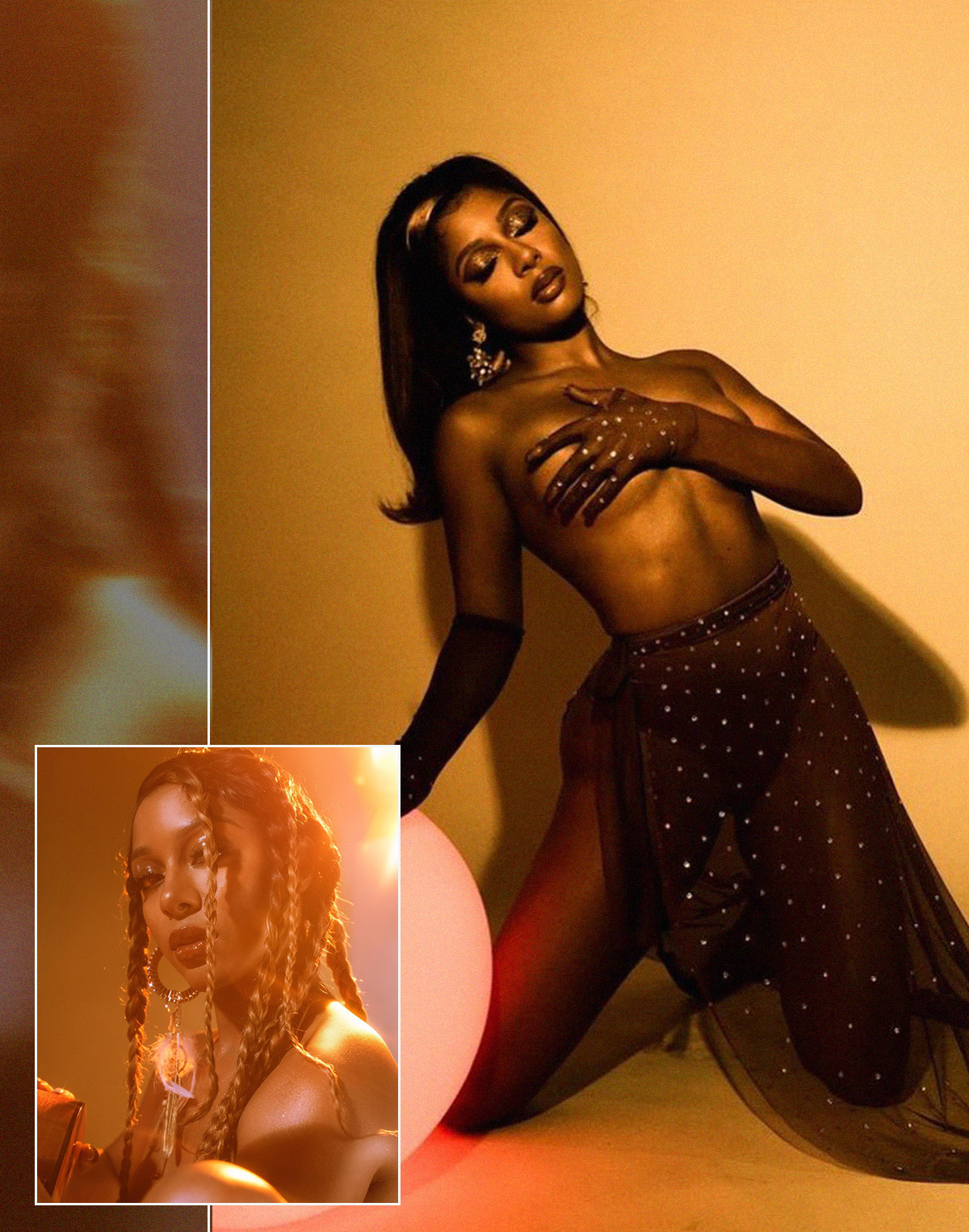
Chances are you’ve heard Monét’s work without even realizing it. As a producer, songwriter, and singer, she’s been the driving force behind a slew of iconic pop and R&B bops. Think "Do It” by Chloe x Halle, "34+35” by Ariana Grande, and "Work From Home” by Fifth Harmony. Monét’s last album, Jaguar—a fusion of ’70s orchestral funk and ’90s R&B—ended up being a streaming sensation. Unlike the upbeat and punchy pop songs Monét is credited with bringing to fruition for other artists, her own style harkens back to the sound of a blues melody.
Monét’s voice is deceptively calming considering the major year she has had. In addition to writing multiple chart-topping hits for others and working on her own music, the singer welcomed her first child, Hazel, into the world. She has since released a new single, "Coastin’” (her love letter to California), and continues to work on upcoming music—all during a global pandemic. If it were anyone else, they probably wouldn’t be able to juggle it all, but Monét’s sense of serenity transmits over the speakers.

When I ask how the pandemic has changed her relationship with music, Monét says that it hasn’t changed much. Rather, it caused a shift in her worldview. "The past year and a half have taught me that life is so delicate and fleeting,” she explains. We’re reminded of this fact mid-conversation as sirens go off in the background. In that moment, Monét sincerely ponders aloud about whether everyone will be okay. Once the noise has passed, she laments, "The most important thing in life is to maintain happiness and to do what it is that you want to do today. We always have a schedule for tomorrow, and some people don’t make it to that.”
The philosophy of seizing the moment feels inherent to Monét’s work and how she approaches every aspect of her life. This becomes even clearer as we talk about her music career. Although Monét shifted her focus from writing and producing for other artists to her own work in 2020, the through line has been helping other artists find their unique voices. When I ask about how that experience has helped her carve out her sound, she explains, "Every time you walk into a room with somebody or into the studio, there’s something to be learned from them. I always look at everyone in the room and think, ‘We’re all supposed to be here—there’s a reason why we’re here.’”
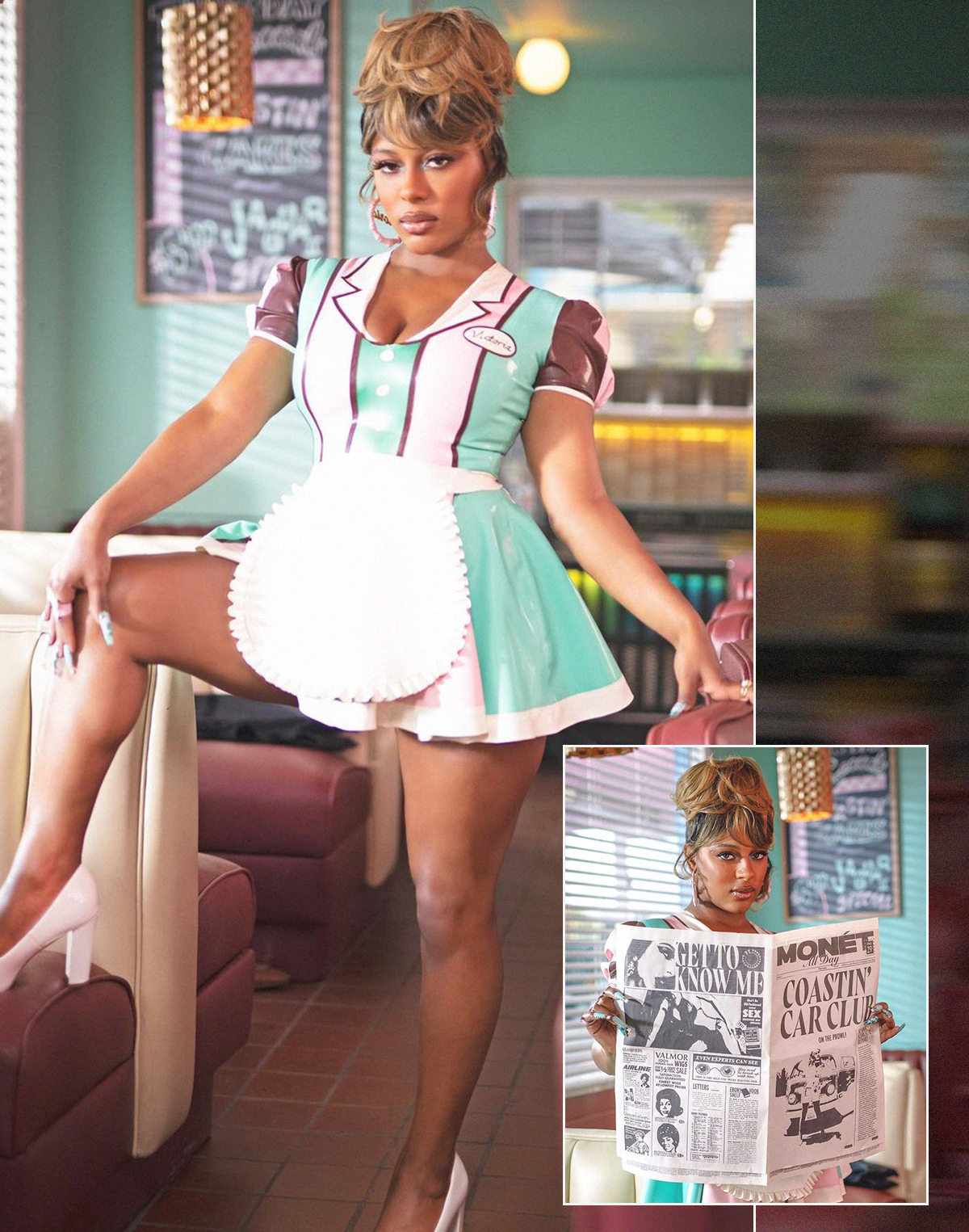
One could imagine that it’s this humility and intention behind creating music and fostering relationships that have earned Monét a long and successful career within the industry. After all, how many artists can say they have worked with a roster of acts like Diddy, Nipsey Hussle, and Brandy; have been nominated for multiple Grammy Awards; and have toured the globe with Ariana Grande and Fifth Harmony? To objective onlookers, it seems that Monét has made it. However, she feels as if there’s more work to do. Monét elaborated, "Probably to my detriment, as a perfectionist, I’m always asking myself, What can I do better? What’s the next thing? What’s the next step forward? How can I improve?”
In Monét’s eyes, there’s not one single moment where she’s felt like she’s made it. While she’s had the chance to work with incredible artists and has received nominations for her work, Monét’s singing has only recently begun to get the spotlight it deserves. After she worked with Ariana Grande on her album Thank U, Next, people (myself included) began to see Monét, but she’s always had a dynamic career. It’s this slow burn that makes me wonder how she’s come to define success in an industry known for its ruthlessness. "I used to think of it as a tangible thing—success being this thing you can attribute to accolades,” she reflects. "But I’ve learned that it’s really about maintaining happiness. It takes a very successful person to maintain inner peace, happiness, and sanity in this world, especially in the music industry.”
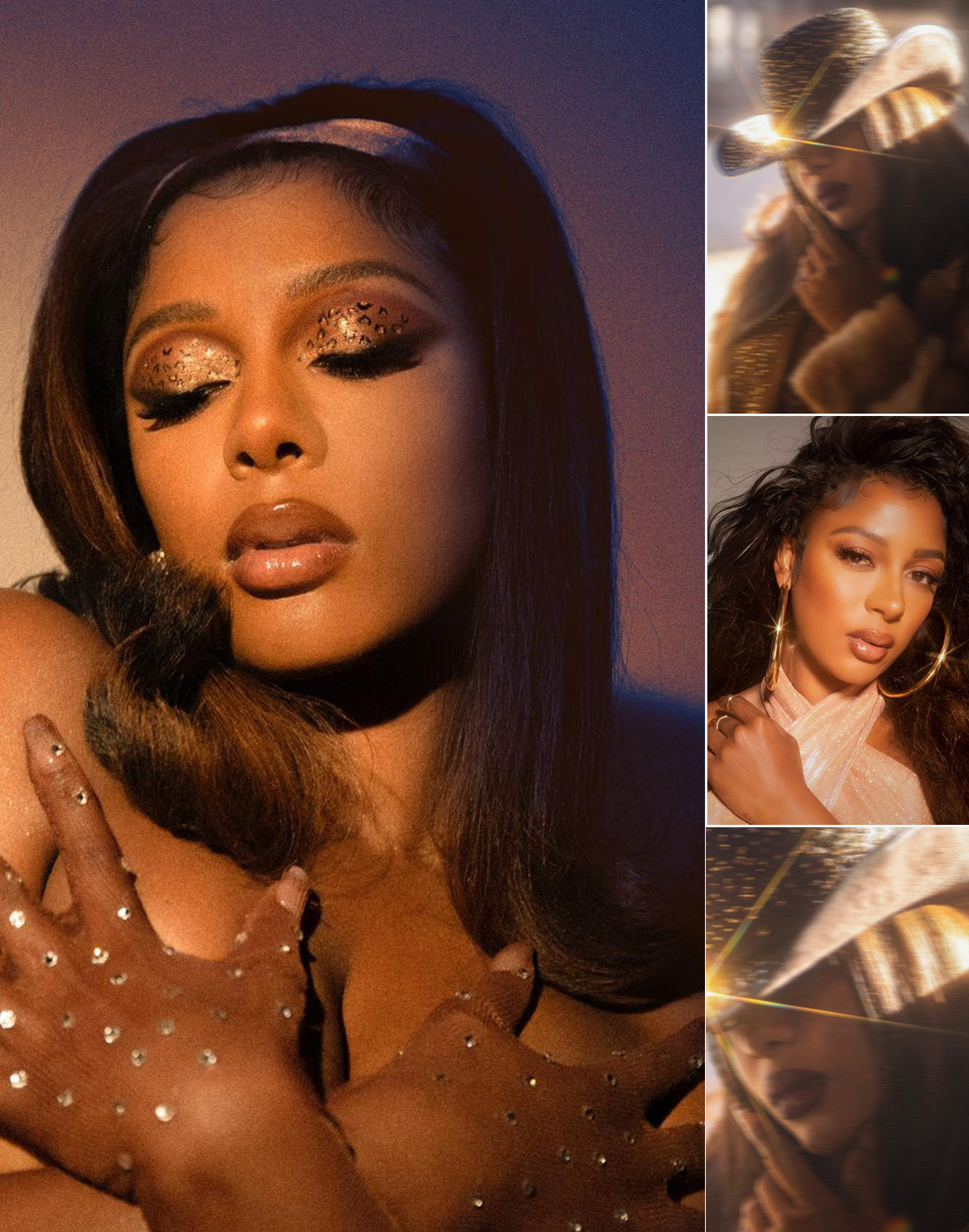
This shift toward focusing on happiness has permeated Monét’s professional and personal lives. But that monumental change does not come without putting in the effort, especially when you’re an artist, a mother, a Black woman, and a member of the LGBTQ+ community. For Monét, self-care has come in many forms over the past two years: making music, getting massages, taking bubble baths, watching comedies, coloring, playing with her daughter, and attending therapy. When I inquire about how she got into therapy, she admits that it wasn’t an easy step to take. "It was harder for me to justify making the time for therapy. I didn’t think I had the time to sit down and talk to somebody. I didn’t think an hour was enough time to sort through my whole life. So I found other things instead of it,” she says. The nudge she needed to finally prioritize her inner peace came from her manager, who point-blank told Monét that she was not going to continue to work with her unless she took her mental health practice seriously. "That is a part of taking yourself seriously,” she recalls.
You might not expect someone who is so public about her feelings to struggle with diving into them with a professional, but for Monét, that push was exactly what she needed. "My manager was completely right. It is super helpful to have an unbiased, educated stance on things that you can do to help yourself or how to form better habits. I think it is a necessity for everyone.” she explains. "I’m glad that the stigma around therapy has begun to change, that it’s almost ‘trendy’ right now to be in therapy. … I’d rather it be trendy and people addressing what they need to than ignoring it altogether.”
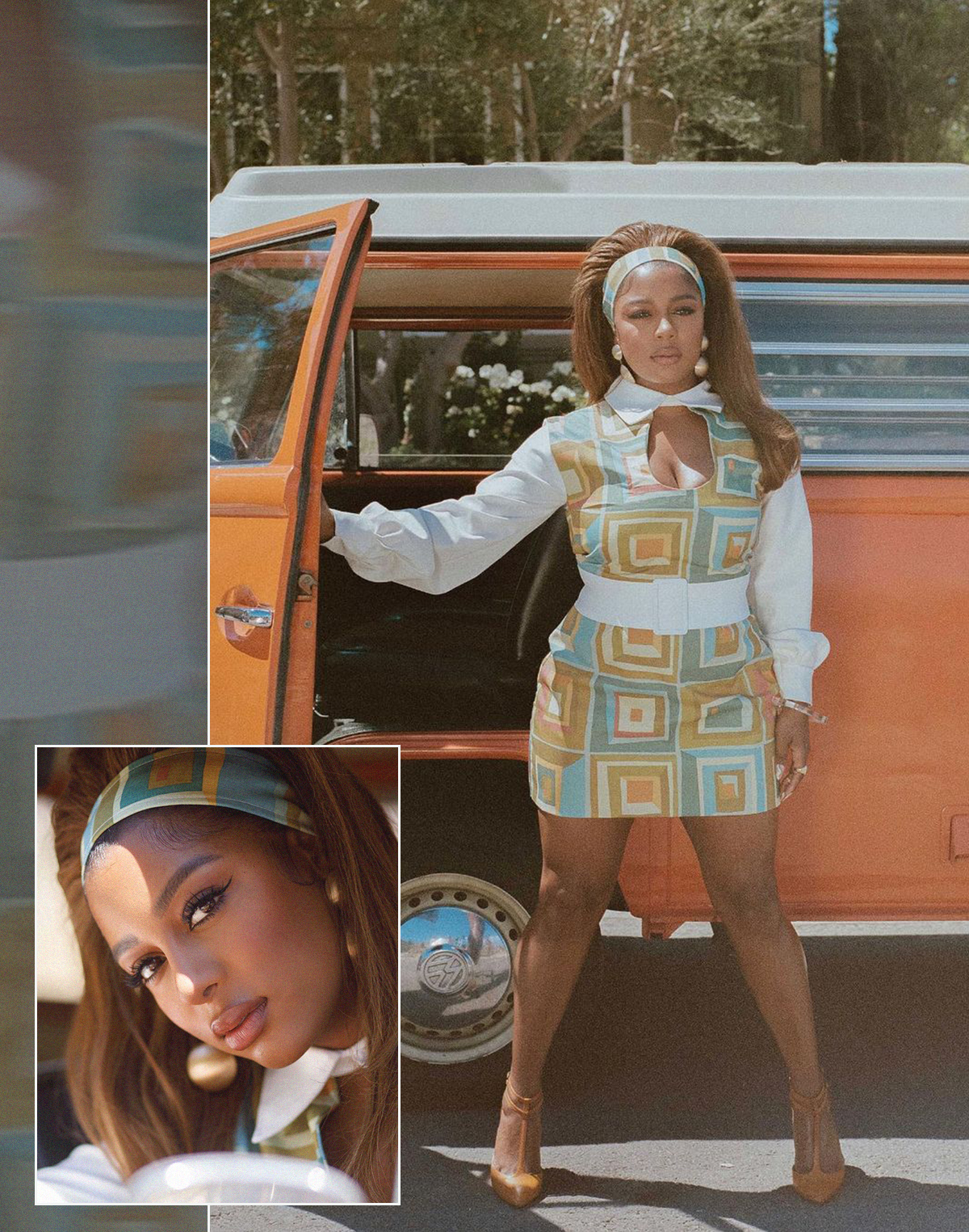
Therapy is not the only way Monét gets in touch with her feelings—songwriting has always been a grounding practice. She sees each song as a mirror and a way to reflect and talk about her experiences. She explains, "Songwriting is magic because it can take you back to a happy place, or you can remember being in a tough situation, but you still had that song to get you through it. You got to jot down some of the things you were feeling, and it’s a window into that moment forever.” It’s this mysticism that shrouds her music, as her lyrics often tap into symbolism and euphemisms paired with funky beats and R&B vocals.
For some, Monét’s sensual R&B lyrics could be unsettling, but she’s at a point in her life where she’s just writing, in her own words, "whatever the hell [she wants] to.” Monét says, "It’s just all about living in my identity and not shying away from the thoughts that I have to be politically correct or to appease a certain audience. I’m just trying to create a reflection of how I’m feeling at that moment with my music.”
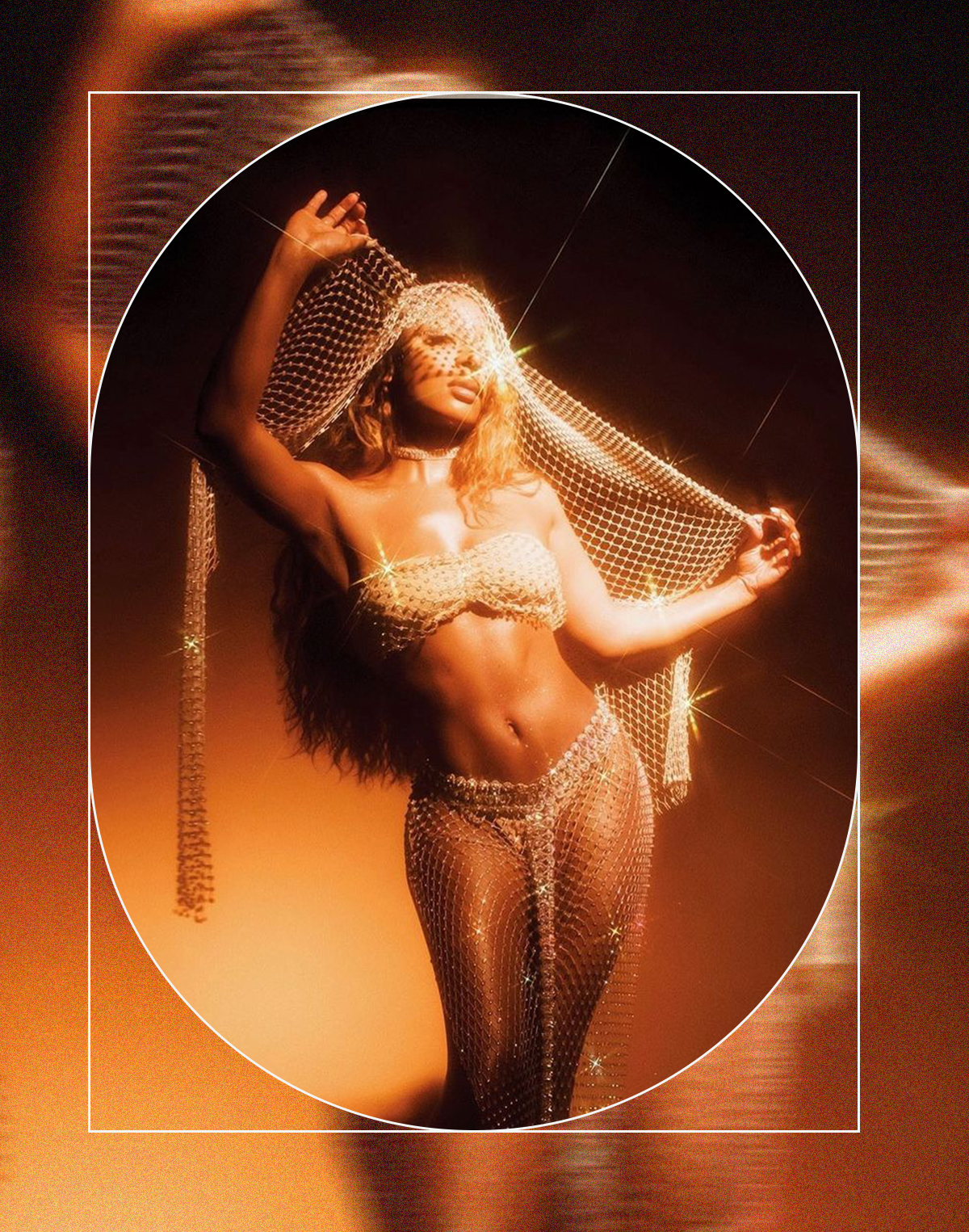
This authenticity has made Monét an artist to watch, but beyond that, her approach to music is a reflection of the moment the music industry is having. With the rise of unapologetically Black and LGBTQ+ artists such as Lizzo and Lil Nas X, it seems as though we’ve entered a new era on the pop charts. Monét sees this shift as a major positive. "People are more unapologetic and authentic to themselves, and we see that freedom expressed in music,” she says.
That freedom of expression has power, and that power is something Monét thinks about often. In her writing process, Monét doesn’t intentionally think about how her message will be received. (She is finally making music for herself, after all.) Rather, she is concerned with giving a voice to the things listeners might not know how to put into words. "The world really can be such a harsh place, but if you can dive into a certain song and it allows you to have a safe haven—at least for three minutes—that’s powerful,” she says. "Lyrics allow you to hear someone that may feel like you or sees you and celebrates you versus the chaos that you may experience by going to walk down the street. That’s its own form of therapy.”
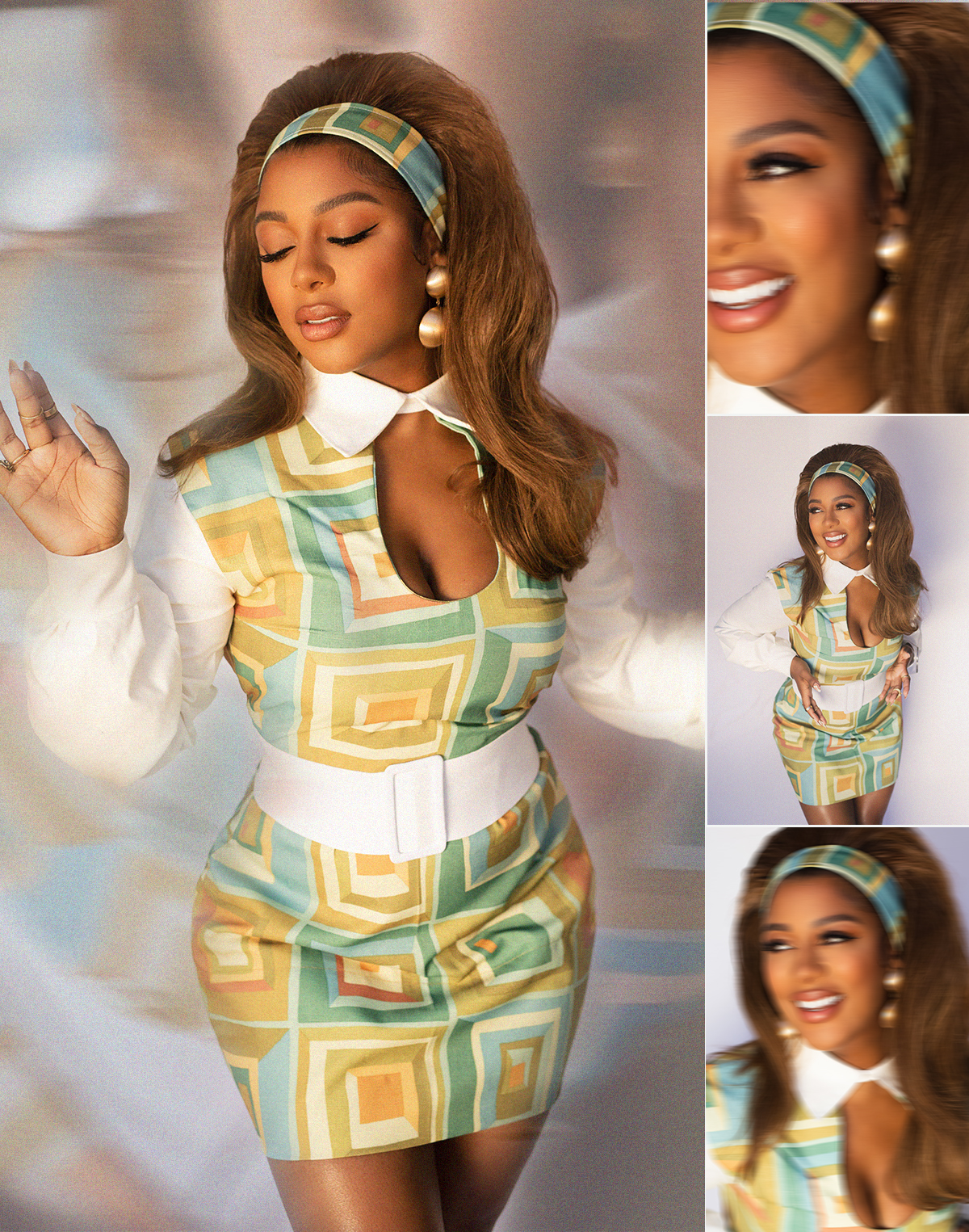
Music is powerful in that way, and that power moves far beyond the personal realm for Monét. As a musician, she knows firsthand how inspiring it can be to the next generation to see a Black, bisexual mother singing her heart out on stage. She understands this is her moment to step into the light, and she won’t let it distract her from being present with herself, her child, and her craft. As we wind down the conversation, I ask about how music can humanize and destigmatize the LGBTQ+ community and connect us all. She ponders for a moment and then says, "Music is so powerful. Sometimes, I think it’s more powerful than even politics. People actually listen to it and memorize the lyrics. I don’t know if people go around memorizing speeches. Music has such a big impact; it feels and represents the world at this moment.” Judging by our conversation, if anyone can meet this moment and distill it into a melody, it’s Monét.
Next: British Musician Griff Is Giving Us the Good Stuff

Jasmine Fox-Suliaman is a freelance writer and editor living in New York City. What began as a pastime (blogging on Tumblr) transformed into a lifelong passion for unveiling the connection between fashion and culture on the internet and in real life. Over the last decade, she's melded her extensive edit and social background to various on-staff positions at Who What Wear, MyDomaine, and Byrdie. More recently, she’s become a freelance contributor to other publications including Vogue, Editorialist, and The Cut. Off the clock, you can find her clutching her cell phone as she's constantly scrolling through TikTok and The RealReal, in search of the next cool thing.
-
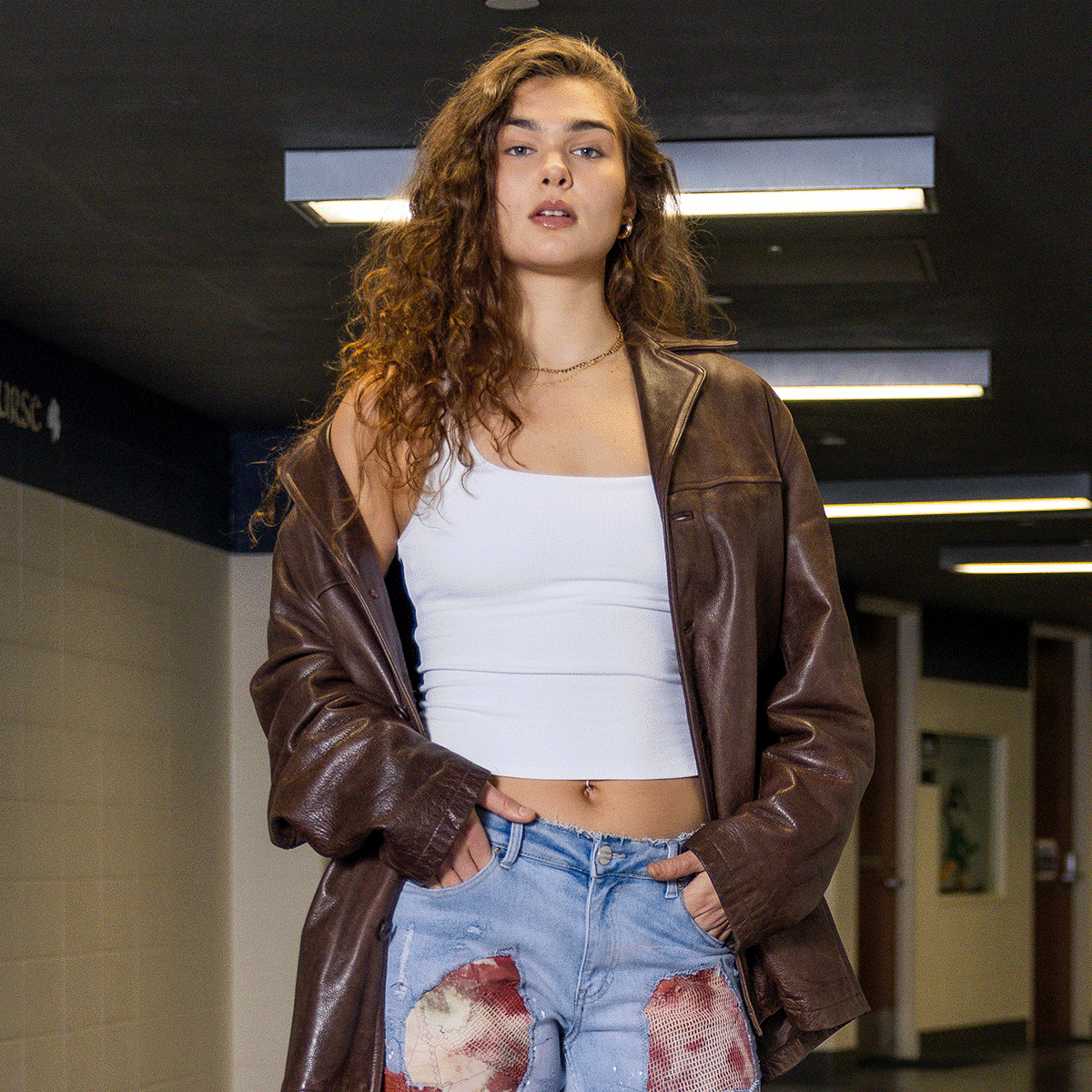 What Happens When College Basketball Embraces the Tunnel 'Fit?
What Happens When College Basketball Embraces the Tunnel 'Fit?I asked Notre Dame's Maddy Westbeld and Coach Niele Ivey.
By Eliza Huber
-
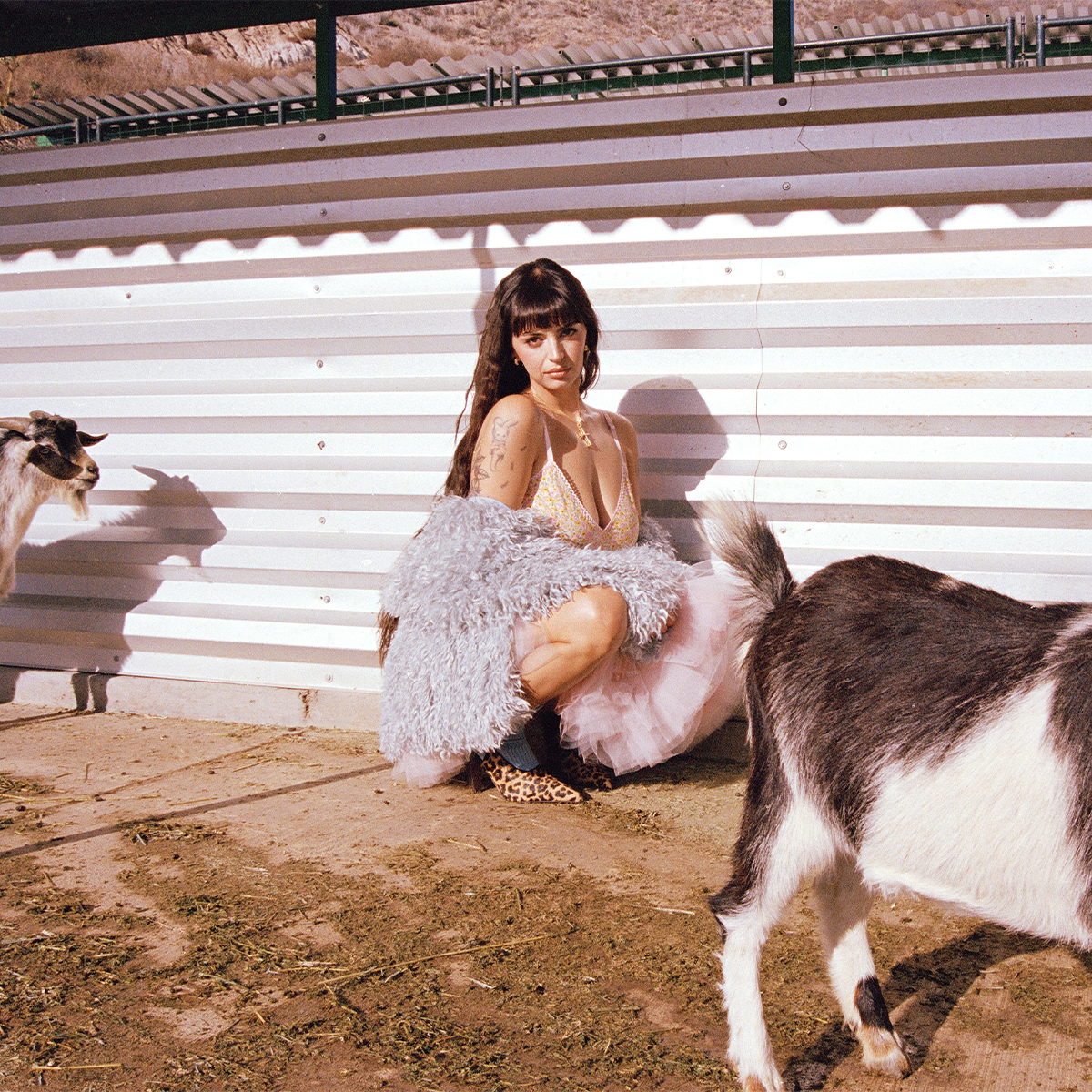 Rebecca Black Is Back and Ready to Show You All of Herself This Time
Rebecca Black Is Back and Ready to Show You All of Herself This TimeThe "Friday" singer has a brand-new pop EP, Salvation.
By Jessica Baker
-
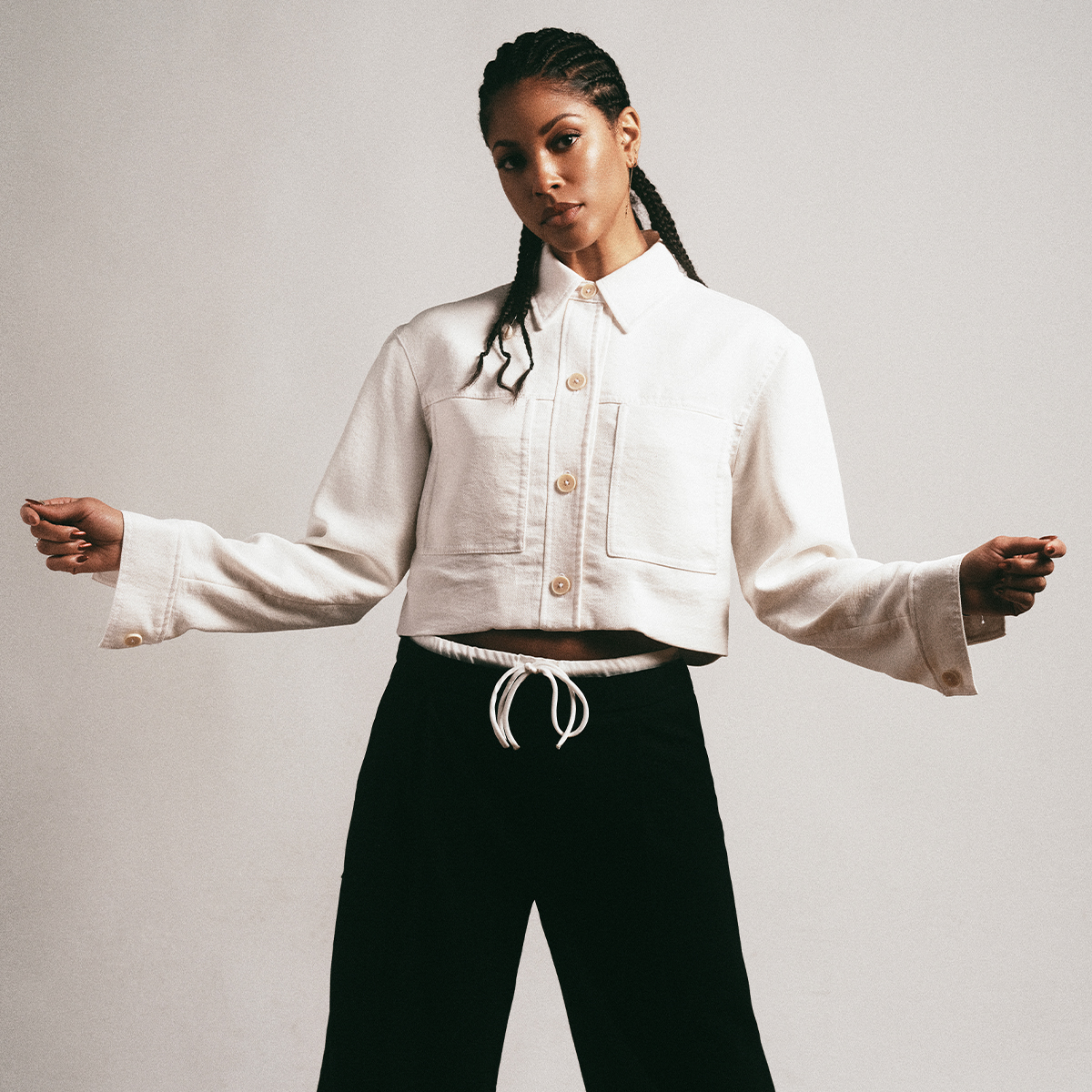 Lex Scott Davis on Joining the Suits Universe and Her Character's Iconic Wardrobe
Lex Scott Davis on Joining the Suits Universe and Her Character's Iconic WardrobeA lesson in power dressing.
By Jessica Baker
-
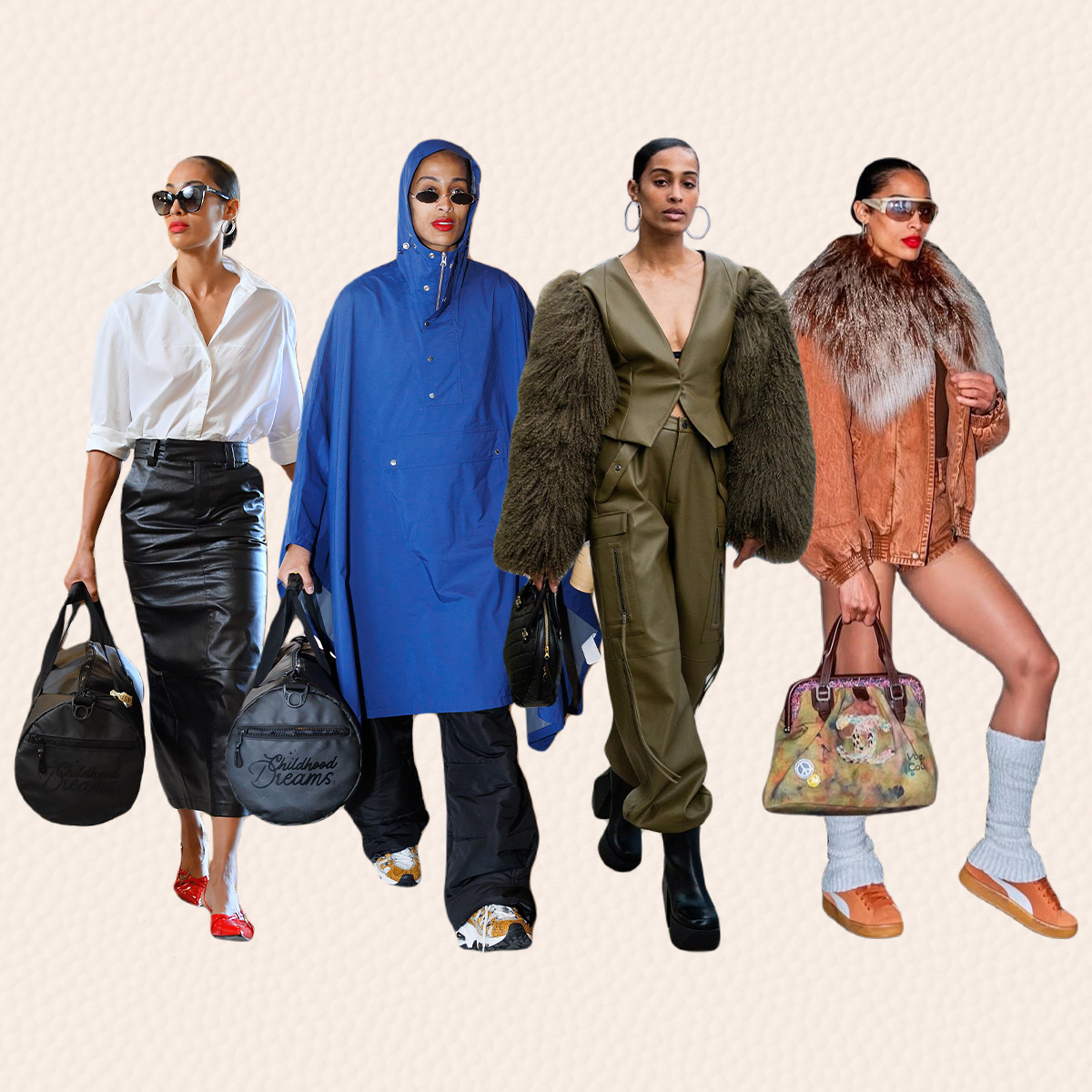 The Power of Styling in Sports
The Power of Styling in SportsIn conversation with Skylar Diggins-Smith and her stylist, Manny Jay.
By Eliza Huber
-
 Alix Earle Takes Fashion Risks for Miu Miu (Yes, That Includes Socks With Heels)
Alix Earle Takes Fashion Risks for Miu Miu (Yes, That Includes Socks With Heels)Anything for Mrs. Prada.
By Ana Escalante
-
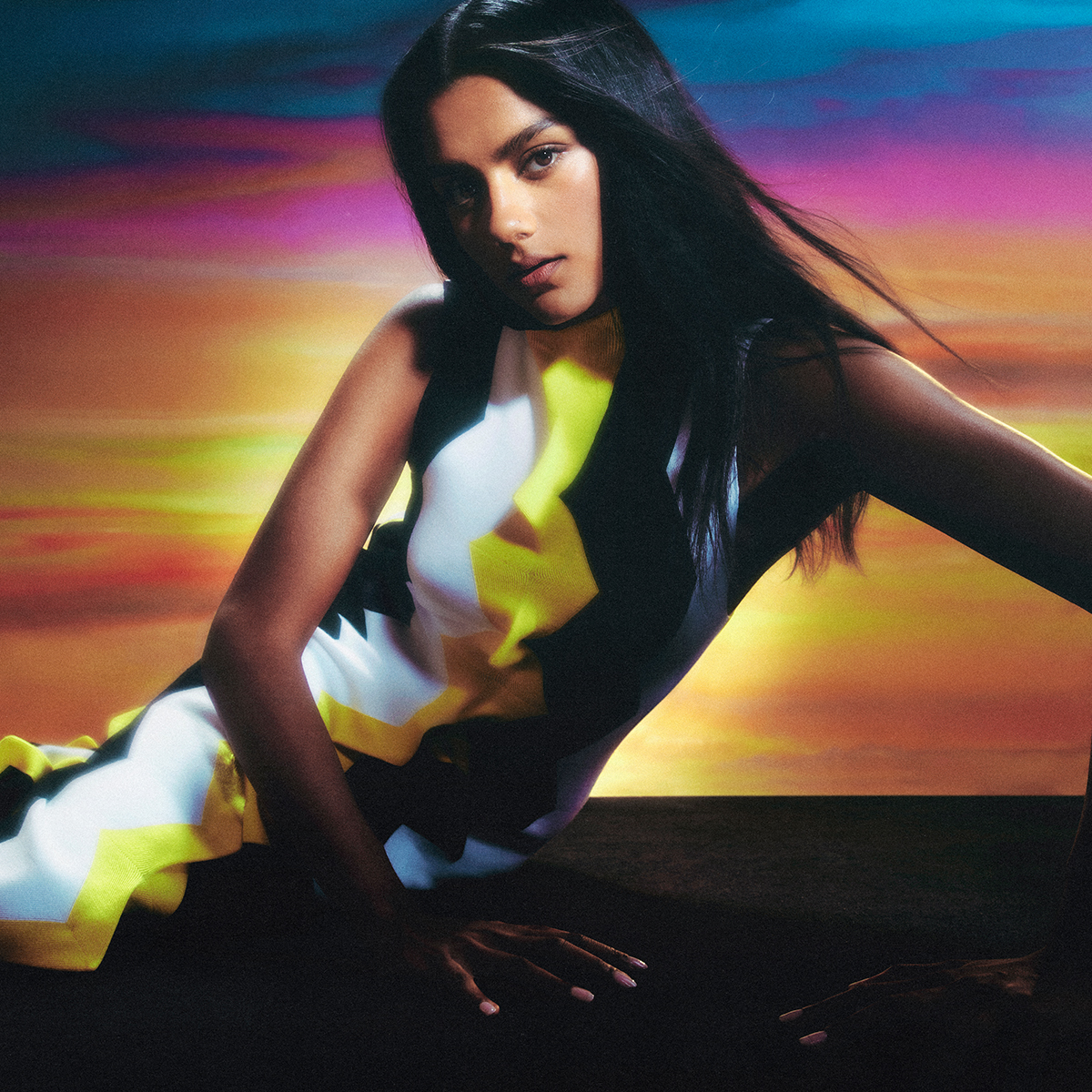 Simone Ashley Is in the Fast Lane
Simone Ashley Is in the Fast LaneSince her breakout role in Bridgerton, our Spring Issue cover star has quickly risen to A-list status. Up next, she masters the rom-com leading lady.
By Liv Little
-
 Invest In America: Meet the Political and Creative Forces Driving American Fashion's Evolution
Invest In America: Meet the Political and Creative Forces Driving American Fashion's EvolutionThe future is now.
By Ana Escalante
-
 How Melissa Fumero Built One of Our New Favorite Fashion People on TV
How Melissa Fumero Built One of Our New Favorite Fashion People on TVMeet Birdie, Grosse Pointe Garden Society's queen bee and fashion person.
By Jessica Baker

